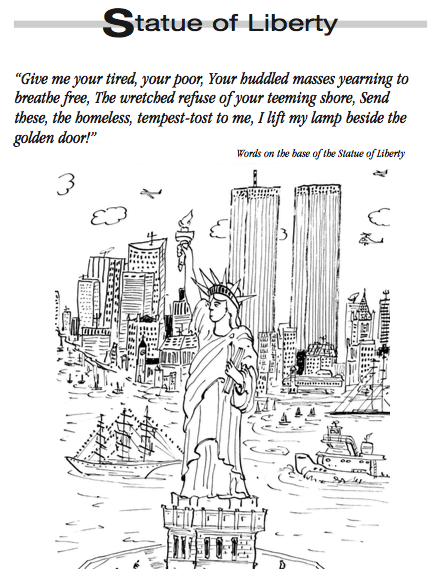
All my life, God has been with me. Sometimes I did not realize what God was doing; but as I grow older, I know God, God’s people, and our hard work carried us through some pretty tough times.
We left my home country of Latvia in late 1944. The Soviet bombers were dropping their bombs on certain parts of the capital city of Riga. We could see the smoke spiral upwards from the fires the bombs started. We understood the Soviet Army was about ten miles away.
Our Nazi German rulers for the past few years were retreating and taking all Germans with them. My father had died 10 years earlier. He and my uncles were well known and politically suspect by the Soviets. If we stayed, we would be either killed or sent to Siberia.
My mother decided we should leave while we could. Because she spoke German fluently and because of the chaos of the German retreat, the Germans did not ask to see our papers. We were allowed to board the last troop ship leaving Latvia. We each carried a couple of suitcases and that was it. Everything we owned was left behind.
As soon as we disembarked from the ship in Germany, the soldiers assigned us to work details. My mother, younger sister, and younger brothers were sent to work on a farm. I had to work in a shipyard. Within a year, World War II ended and all non-German people were put into Displaced Persons’ Camps by the American and British forces. We were put in the American camp with hundreds of other Displaced Persons.
We couldn’t return home to Latvia because we would be persecuted by the Soviets. Our family was on their wanted list. We decided to seek refuge in the United States and out West where everything was still new and opportunities existed.
We put in our application for permission to settle in the United States. It took about four years before we could emigrate. We had to have a sponsor. The United States’ Resettlement Office paid for our sea voyage, and the Lutheran Church paid for our train fare to the West.
Our hopes ran high as we entered New York harbor and saw the Statue of Liberty standing so tall. When we turned to the tall buildings in New York City, it was almost as if the Statue of Liberty said, “See what opportunities I have given immigrants like yourselves.”
We had finally reached the Promised Land, our new country. My younger brothers and sister were excited, too. But my mother was sad and anxious. Her English wasn’t very good. This was an unknown part of the world for her. What lay ahead for her family and her? Where was God leading her?
We were put on a passenger train to the West Coast and the state of Washington. We bought sandwiches or bread and peanut butter and jelly at every train stop because we could not afford to buy the food on the train. Day after day, our train kept moving west.
When my mother saw the vastness of the United States, with field after field of crops and no one to be seen and the empty vastness of the dry land, prairies, and even deserts, she began to wonder whether she had made the right decision to go to the West Coast. You see, my mother was a city woman.
Finally, our train reached Olympia, Washington. Our sponsor met us. He took us to his farm in Lacy, Washington, where we worked for three months. All of us had to work from dawn to dusk picking vegetables, broccoli, squash, and pumpkins. And at night all we had to live in was a converted railroad boxcar. My mother worried about what would happen to us when winter came. She knew we could not survive on what little money we had earned and live in a boxcar.
Pastor Milton Nesse from the Lutheran Church in Aberdeen, Washington, went to the local Resettlement Office to find an immigrant family that his church could sponsor. He met with us. My mother poured out her heart and her worries to him as best she could in her broken English. He told her not to worry, that he and his congregation would help us.
Soon thereafter, those Christians came to get us and took us to Aberdeen. They found us a small house in which to live and helped us to find jobs. I worked in a furniture factory for a few months. Then the Korean War broke out, and I was drafted into the Army. I had just turned 20 years old.
I served in the United States Army and was discharged in 1953. My service time gave me the opportunity to learn English and needed money to go to college with my G.I. Bill of Rights. I studied hard, learned to be proficient in the English language, and went through the University of Washington’s engineering school. During the summer, I earned money working on highway construction. After I graduated from college, I went to Washington, D.C. and worked in the Patent Office of the United States during the day. At night, I went to law school. Ever since I graduated from law school, I have made my living as an intellectual property/patent attorney.
I tell you this story for a couple of reasons. One, you cannot own possessions. You can use them, but you cannot really own them. Circumstances may and will cause you to abandon them as my family and I had to do if we wanted to live. Your most precious possessions are a good attitude, belief in and obedience to God, trust, love, a good education, and practical knowledge. These essentials are all you need to survive. No one, no government, no person can take these from you.
Good health and loved ones are needed also. But sometimes wars or divorces or illness and death take these from you. Faith and belief in God in Jesus Christ can help you survive these valleys of trouble.
Immigrants come to this country every day. They may be in your town. They may need your help. Would you do for them what Pastor Nesse and the Lutheran Church did for me? For my family and me, the help we received from God’s people is what Thanksgiving is all about.
My husband died in January 2011.
